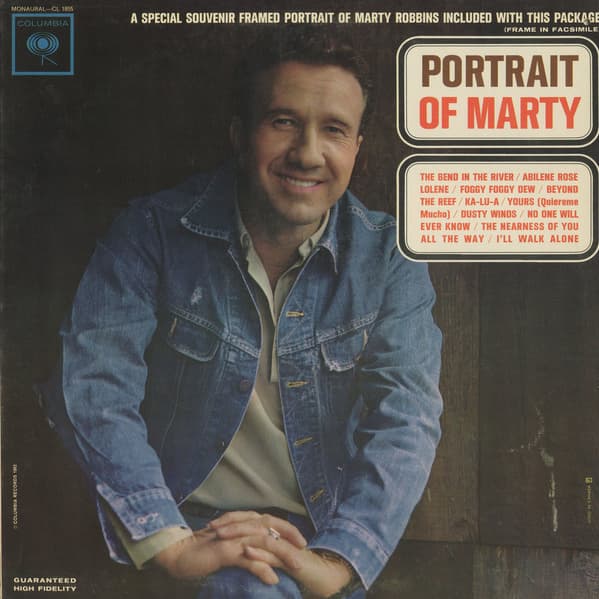
Marty Robbins – Rosalita: A Tragic Ballad of Love, Jealousy, and a Desert’s Somber Silence
Among the many colorful narratives brought to life by the incomparable Marty Robbins, few resonate with the dramatic weight and emotional finality of “Rosalita.” This song, a staple of his extraordinary storytelling prowess, showcases the darker, more tragic side of the human heart, framed against the dusty, unforgiving backdrop of the Southwest that Robbins knew and loved so well. It is a tale of love, rivalry, and a fatal misjudgment.
“Rosalita” was featured on Robbins’s iconic and groundbreaking album, Gunfighter Ballads and Trail Songs, released in 1959. While it wasn’t chosen as one of the primary singles that dominated the charts—hits like “El Paso” carried that torch—its inclusion on this landmark album gives it a permanent, esteemed place in country music history. The album itself peaked at Number 6 on the Billboard Top LPs chart, a remarkable achievement for a country record at the time, proving that audiences were hungry for the cinematic, complex narratives that Robbins specialized in. For those of us who bought the album back then, tracks like “Rosalita” were just as vital as the hits, creating a rich tapestry of desert drama that defined a generation’s understanding of the American West.
The composer of “Rosalita” was Marty Robbins himself, which is key to understanding its deep emotional texture. When he wrote his own dramatic narratives, they came imbued with an authenticity that was unmatched. He wasn’t just singing a story; he was channeling the spirit of the character, the hot sun, and the fatalistic nature of a harsh land.
The story laid out in “Rosalita” is a heart-wrenching love triangle. The narrator is deeply and hopelessly in love with the beautiful Rosalita. However, a formidable rival—a man known for his quick temper and his gun—stands between them. The tension is palpable: the love is real, but the danger is deadly. The climax of the song details a confrontation driven by consuming jealousy. In a moment of fateful haste, the narrator draws his weapon and ends the life of his rival. But the tragedy doesn’t end there. After committing the irreversible act, he realizes the full, devastating consequence: Rosalita turns away, heartbroken and repulsed, proving that his violent act to “win” her only resulted in losing her forever.
The profound meaning of “Rosalita” is a tragic commentary on how passion and jealousy can utterly destroy what they desperately seek to possess. It’s a powerful lesson in the futility of violence as a solution for matters of the heart. For the mature listener, who has navigated the tumultuous waters of human emotion over the years, the song serves as a somber reflection on irreversible choices. It’s a moment of dramatic irony, where the hero’s victory is his ultimate defeat, leaving him alone with his memories and the silent judgment of the desert sky. Robbins delivers the tale with that trademark smooth, yet emotionally weighted baritone, ensuring that the listener feels the crushing regret of the narrator long after the final note fades. It’s a timeless ballad, heavy with the weight of consequence and the sorrow of a love extinguished by a bullet.